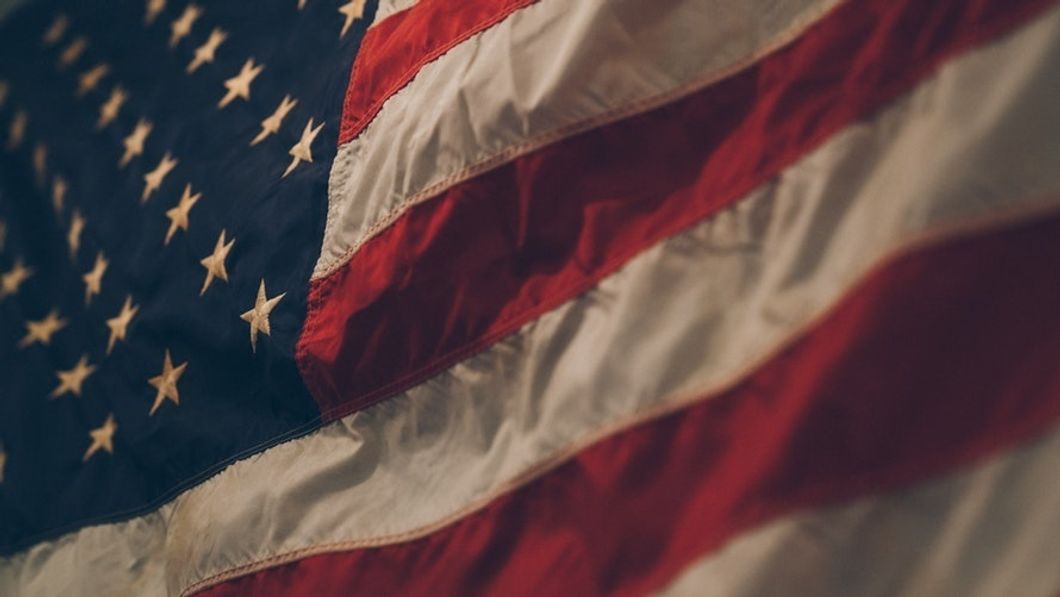Does our political landscape seem unnecessarily divided at the moment? Does our country appear to be polarized over everything? The answer is, undoubtedly, yes.
According to Pew Research, only 52% of Americans say they trust all or some of their neighbors while the other 48% say they trust none or some of them. A poll done by Axios shows that 51% of Americans have faith in democracy while 37% do not. Another study done by Pew Research found that 47% of self-described liberals say they have a hard time staying friends with someone who is a Trump supporter. Also, 68% of Democrats said it was "stressful and frustrating" to talk with political opponents. 52% of Republicans said the same.
Our country is definitely divided. While it obviously isn't worse than the Civil War era 1860s, however, there is still polarization. Not only do those studies prove division, but events in recent years do too. The Charlottesville riot was a nasty result of our polarization as a whole. Riots during the 2016 election and in Washington, D.C. during Donald Trump's inaugurations also shows our division. The national anthem kneeling controversy has stoked and proven polarization. College campus protests are another form of the country's separation.
Why are we, as a nation, so polarized? Was it Trump and/or Clinton during 2016? They may be factors, but not the main ones. I think it lies in the larger scale.
During the first week of April this year, I had the privilege to participate in the Florida Senate Page Program. Our job mainly consisted of bringing documents and posters to offices and getting beverages for the senators while they were in session. Through this experience, I was fortunate to meet many different people involved in Florida politics. I met senators, legislative aides, lobbyists, and activists.
When I was there, I realized there wasn't a sense of division. As far as I could tell, everyone was getting along and not at each other's throats. During session recess, another page and I were talking with a group of senators, three of whom were Republican while two of them were Democrats. They were friendly with each other, teasing and talking. I was surprised to see that, given our nation's division. In addition, one of my fellow pages I got along with the most was a Democrat. I'm more conservative; he was a Democrat, but we didn't let our political differences get in the way of becoming friends. We used them as an opportunity to understand the other side's point of view.
I was seeing Democrats and Republicans being kind and courteous to each other, but I still knew there was a wave of polarization over America. I read the studies and heard the events, so I was aware. I thought, why is there such nasty division in the large scale of American politics, but not in the small scale of state politics? It's because on the large scale, we assume that our political opponents have malicious intent.
Whenever someone politically disagrees with us, we have a tendency to get angry. Assuming bad intention from the person we disagree with, we try to have nothing to do with them and/or criticize them personally. This phenomenon occurs easily and much more frequently on a large scale. It is easy to attack someone who is not standing right in front of you. Stamping "evil" on someone just because they disagree with us fuels division and shuts down honest discussion, and loudmouth politicians don't help either (we all have a few in mind).
On a smaller scale, it's different. We tend to personally know our opponents and understand their intentions better. Because of that involvement, we don't assume foul intentions on their part when we disagree with them. The relationship is more important than politics.
We need to realize that the people with whom we debate politics are individuals—not a caricature of their ideas. Instead of jumping to conclusions and expecting the worse from them, we should hear them out and understand their viewpoint.






 The minimum wage is not a living wage.
StableDiffusion
The minimum wage is not a living wage.
StableDiffusion
 influential nations
StableDiffusion
influential nations
StableDiffusion












